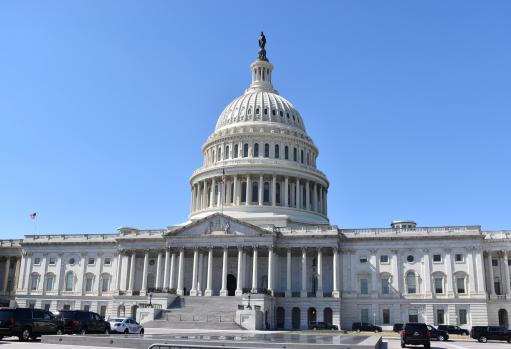Voters need information about who pays for political ads in order to make informed decisions at the ballot box. Unfortunately, to this day, inaction on the part of the Federal Election Commission (FEC) has made it easy for online political ads buyers to hide their identity from voters. This is a big problem in a 21st-century political environment, where so many of the campaign ads voters see are online.
It has been nearly a year since the FEC held hearings on competing draft rules regarding disclaimers for paid digital political ads, and the agency has yet to issue any final rule. The Chair of the FEC, Ellen Weintraub, recently issued a memorandum expressing her support for a rule that closely resembles a proposal released by the FEC in March 2018, which would extend disclaimer requirements that currently apply to radio, tv and printed ads to internet ads. But it is far from clear that the agency is actually any closer to closing the loophole in its regulations that allows the majority of digital political ads to run without disclaimers.
Campaign Legal Center has continuously urged the FEC to update its disclosure rules for digital ads, submitting several rounds of comments on the proposals the FEC published last year and explaining how foreign and domestic actors have exploited the FEC’s continued inaction on digital ad disclaimers to the detriment of American voters.
Ideologically split and two commissioners short, the FEC appears to be deadlocked over how to regulate the online ads that have proliferated over recent election cycles. Specific areas of disagreement have included whether digital political ads should be subject to the same disclaimer rules that apply to print, television, and radio ads, and whether any digital ads should be exempt from disclaimer requirements.
In her memo, Chair Weintraub noted that digital ads increased 260 percent from the 2014 to the 2018 midterm elections, with spending on the ads reaching roughly $900 million.
The FEC will discuss Chair Weintraub’s proposal at its Thursday meeting. But even if all four Commissioners were to agree on the proposal, the FEC would be still be required to formally publish its proposed final rule in the Federal Register and give the public an opportunity to review and comment on it before it could take effect.
Amid the inaction at the federal level, a number of states have taken their own steps to close the digital disclosure loophole by requiring digital political ads to be made available for public review and, more generally, by updating their laws to make clear that digital ads are included in provisions requiring disclosure of political advertising. These state laws are an important development in providing the public with information about who is behind digital political ads. But they don’t absolve the FEC of its duty to address the problem at the federal level. Indeed, uniform federal rules are the best way to ensure transparency and deter illegal activity.
This post was written by Daphne Thompson, a 2019 CLC summer legal intern.

